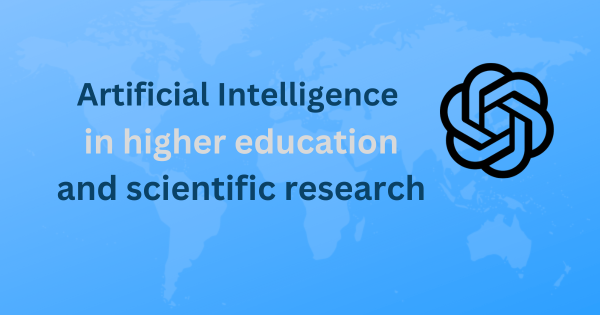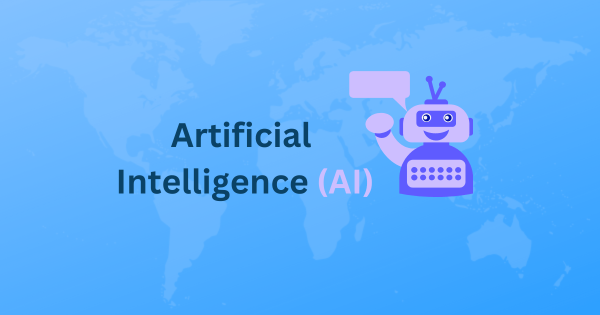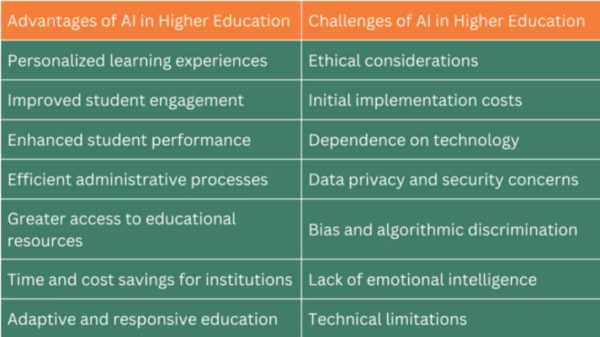AI in Higher Education Research: Benefits and Challenges

The Role of Artificial Intelligence in the Future of Education
Artificial Intelligence (AI) has rapidly infiltrated the realm of higher education and scientific research, transforming the way teaching and learning occur, as well as augmenting data analysis and hypothesis generation. This technology personalizes learning experiences, enhances student engagement and streamlines grading and assessment. In research, AI utilizes large data sets, uncoversing patterns and trends, generating novel hypotheses and contributing to the creation of new materials, experimental design and simulation of intricate systems. Undeniably, AI holds the capability to revolutionize the education and research landscape, granting access to previously unseen insights, advanced tools and innovative problem-solving approaches.
Table of Contents
Benefits of AI in Higher Education Research
Personalized Learning
AI can be used to personalize the learning experience for students by analyzing their learning patterns, preferences, and performance. This can help educators identify areas where students need more support and tailor their teaching methods accordingly.
Efficient Data Analysis
AI can analyze large amounts of data quickly and accurately, which can help researchers identify trends and patterns that would be difficult to detect manually. This can lead to new insights and discoveries in various fields of study.
Prediction and Forecasting
AI can be used to make predictions and forecasts based on historical data. In higher education research, this can help educators and administrators anticipate student needs, trends in enrollment, and other key indicators.
Cost Reduction
AI can automate certain tasks and processes, which can help reduce costs associated with staffing and data management. This can free up resources for other critical areas of higher education, such as teaching and research.

Challenges of AI in Higher Education Research
Ethics and Bias
One of the primary challenges associated with AI in higher education research is the potential for ethical concerns and bias. AI algorithms are only as unbiased as the data that they are trained on. If the data is biased, the algorithm will also be biased. Additionally, there are concerns about the ethical implications of using AI algorithms to make decisions that can have a significant impact on students’ lives.
Data Privacy and Security
Another challenge associated with AI in higher education research is data privacy and security. AI algorithms require access to vast amounts of data to function effectively. However, this data often contains sensitive information that must be protected. There are concerns about the potential for data breaches and the unauthorized use of personal data.
Resistance to Change
There is also a challenge related to resistance to change. Some educators may be resistant to adopting AI-powered tools because of a fear of job displacement or because they prefer traditional teaching methods. Addressing these concerns and ensuring that educators are adequately trained to use AI tools is crucial for the successful integration of AI in higher education research.
FAQs
AI in higher education refers to the integration of artificial intelligence technology into the learning process. AI can be used to enhance personalized learning experiences, improve student engagement, and provide real-time feedback to students.
AI can personalize learning experiences, improve student outcomes, automate administrative tasks, and be a cost-effective solution for institutions.
The challenges of AI in higher education include bias and discrimination, data privacy and security, ethical considerations, and implementation costs.
The advantages of AI in higher education include personalized learning experiences, improved student engagement, enhanced learning outcomes, increased accessibility, and predictive analytics.
Implementing AI in Higher Education
Implementing AI in higher education requires careful planning and consideration. Here are some tips for successful implementation:
- Identify the areas where AI can have the greatest impact
- Develop a clear strategy and plan for implementation
- Ensure that educators and support staff are properly trained
- Address ethical concerns around data privacy and security
- Continuously evaluate and improve the AI system

Case Studies
Examples of AI in Higher Education:
- Georgia State University
- Arizona State University
- Carnegie Mellon University
Frequently Asked Questions
- What is AI in higher education?
- How is AI used in higher education?
- What are the advantages of AI in higher education?
- What are the challenges of AI in higher education?
- How can AI be integrated into higher education?
- What are some examples of AI in higher education?
- What are the ethical considerations of AI in higher education?
- What are the technical challenges of AI in higher education?
- What are the human challenges of AI in higher education?
- What are the future directions of AI in higher education?
Conclusion
AI technology has the potential to transform higher education, providing personalized learning, improved efficiency, predictive analytics, and virtual assistants. However, it also presents challenges such as bias and ethics, lack of human interaction, cost and infrastructure, and privacy and security. Therefore, universities and colleges need to weigh the advantages and challenges of AI technology carefully and develop strategies to ensure its ethical and effective use. By doing so, AI can contribute to a more effective and engaging learning experience for students.
